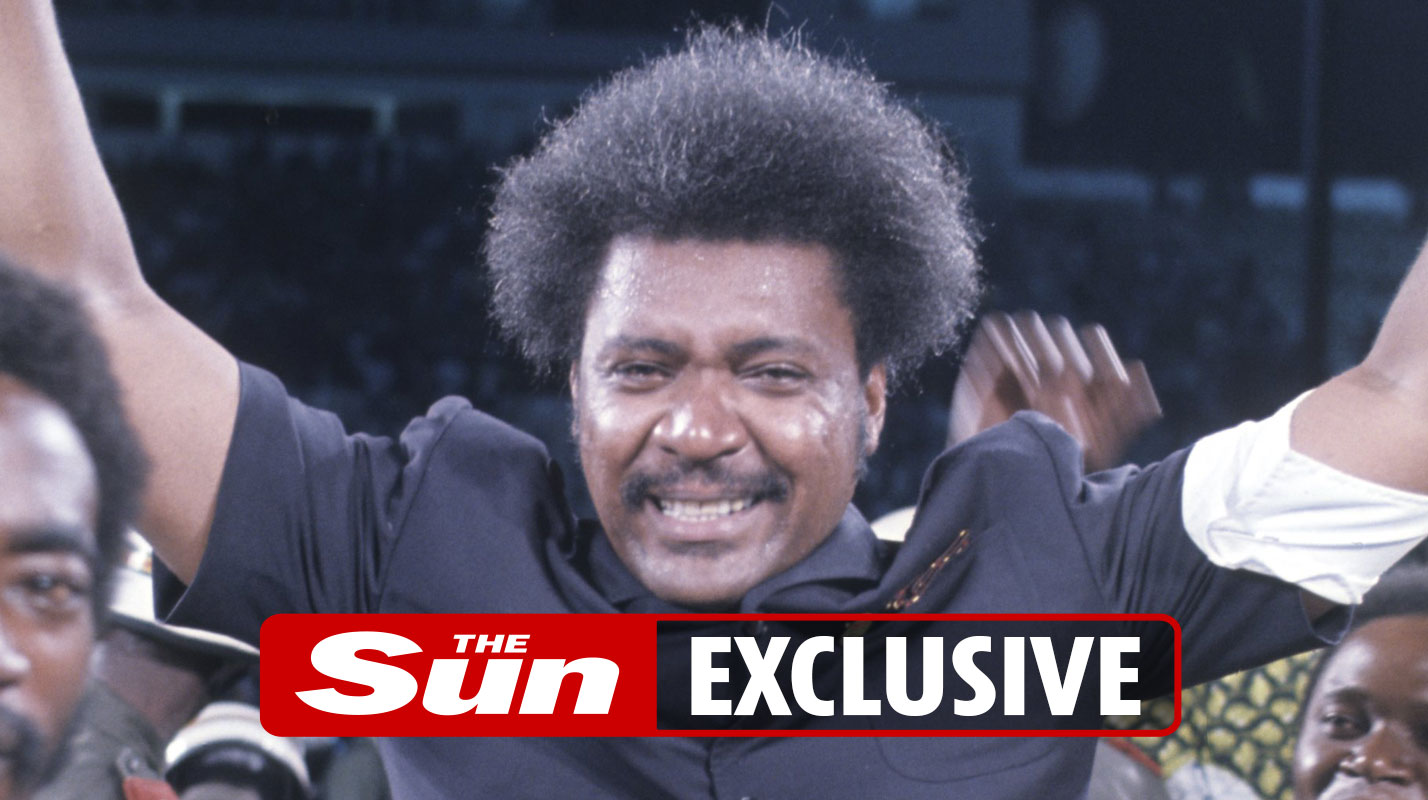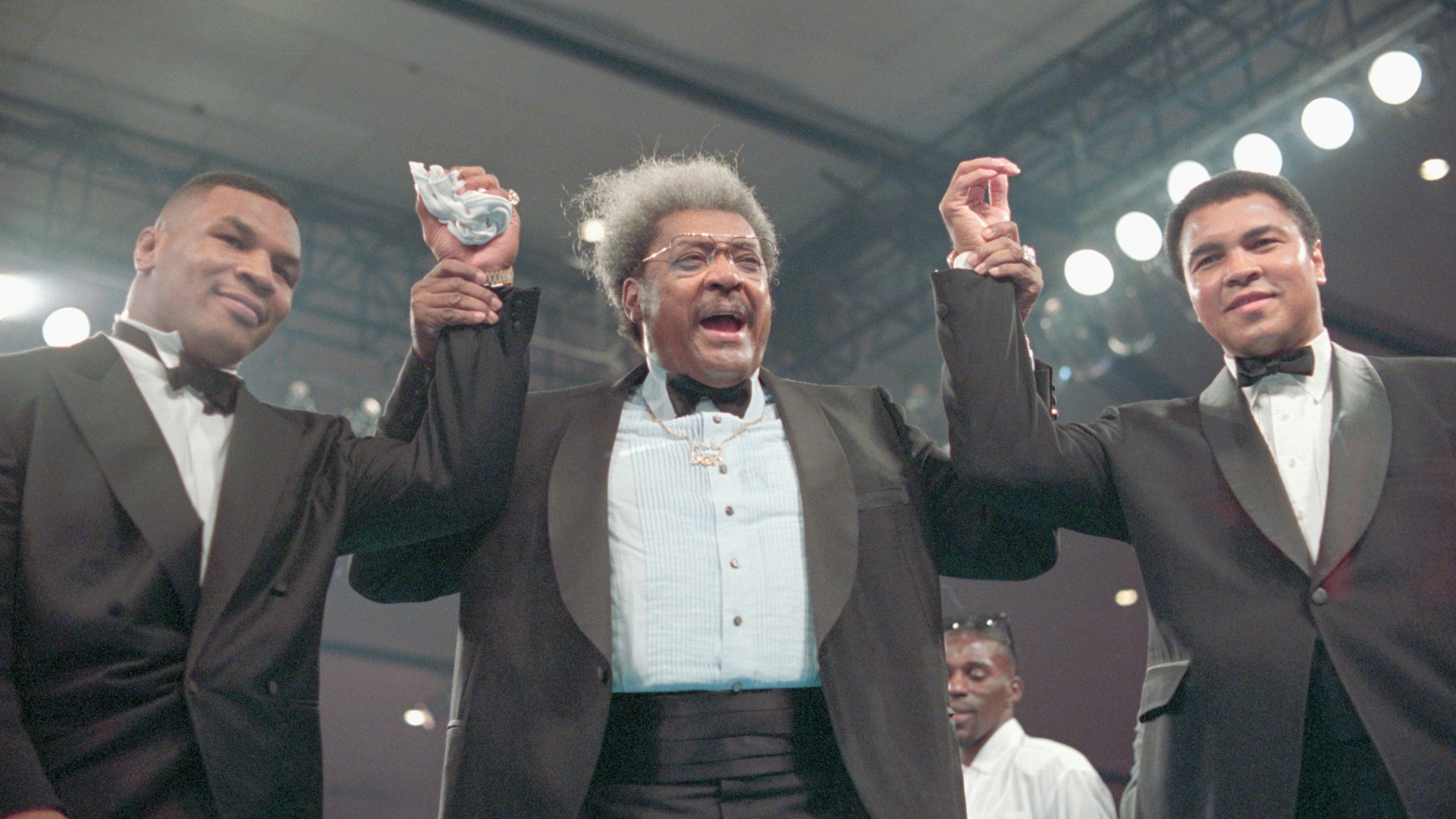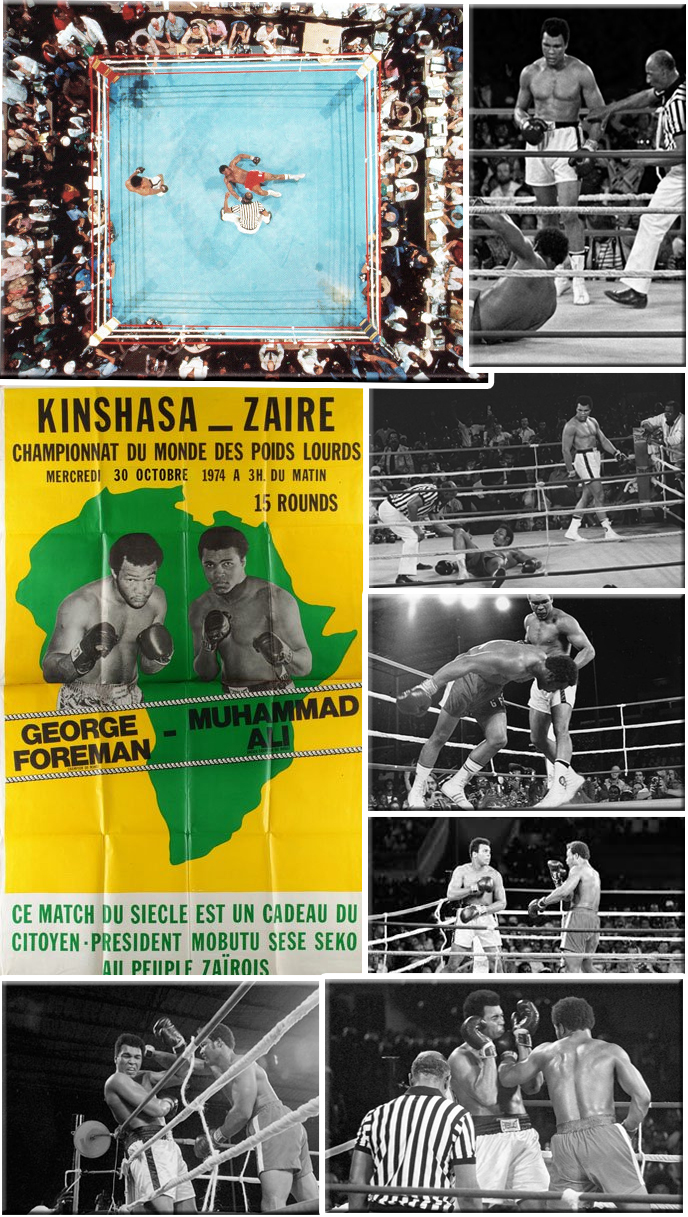The "Rumble in the Jungle" is more than just a boxing match; it’s a cultural phenomenon that transcended the sport itself. Held on October 30, 1974, in Kinshasa, Zaire (now the Democratic Republic of Congo), this legendary bout featured heavyweight champions Muhammad Ali and George Foreman. It wasn't just a clash of titans inside the ring; it was a display of strategic prowess, resilience, and sheer will, all set against a backdrop of political and social change. This event captured the imagination of millions and solidified its place in history, not only for the fight itself but for the dramatic narratives surrounding it.
Background of Don King and His Role in Boxing

Don King is one of the most influential figures in the boxing world, known for his flamboyant personality and unparalleled promotional skills. Born on August 20, 1931, in Cleveland, Ohio, King's journey to becoming a boxing promoter was far from ordinary. Before he ventured into the boxing scene, King had a troubled past that included brushes with the law and even involvement in a murder case. However, his charisma and business acumen propelled him into the spotlight, allowing him to shape the boxing narrative of the 20th century.
King's most significant achievement came with the promotion of the "Rumble in the Jungle". The fight was originally scheduled to take place in the United States, but King worked tirelessly to move it to Zaire. He aimed to capitalize on the political climate and the growing interest in Africa, transforming the fight into a global event. Here’s a look at the pivotal role King played in making this legendary match happen:
- Negotiation Skills: King negotiated a multi-million dollar deal to ensure the fight became a reality. His ability to negotiate with foreign governments and investors was key.
- Media Manipulation: King expertly utilized media coverage, ensuring the fight received massive attention worldwide, which attracted enormous audiences both in-person and through broadcasts.
- Event Logistics: Coordinating travel, accommodations, security, and local engagement, King ensured that everything from the press conference to the fight itself ran smoothly.
Through these endeavors, Don King not only showcased his promotional genius but also played a crucial role in the legacy of boxing, with the "Rumble in the Jungle" standing as a hallmark of his career.
The Athletes: Muhammad Ali and George Foreman

In the world of boxing, few figures shine as brightly as Muhammad Ali and George Foreman. Both men, legends in their own right, brought unique fighting styles and captivating personalities to the ring, making the Rumble in the Jungle one of the most anticipated matches in sports history.
Muhammad Ali was not just a boxer; he was a cultural icon. Known for his fast footwork, quick jabs, and exceptional charisma, Ali was often referred to as "The Greatest." His philosophy extended beyond just fighting—he was a champion for civil rights and social justice, using his platform to speak out against inequality. Ali's ability to dance around the ring and his quick reflexes set him apart from his contemporaries. His record before the Rumble was a staggering 31 wins with only 3 losses, a testament to his skill and determination.
On the other hand, George Foreman was the epitome of brute strength and power. Often daunting with his intimidating physique, Foreman was known for his devastating punching ability. His early career was a whirlwind of knockouts, with many opponents falling victim to his ferocious style. With a professional record of 40 wins and 4 losses leading up to the Rumble, he was considered the favorite to win. Foreman's aggressive approach in the ring earned him the nickname "Big George," and contrasting Ali’s nimble style, he struck fear into the hearts of those who faced him.
The build-up to their iconic clash showcased these two legendary athletes' differences, making the prospect of their showdown even more thrilling!
The Build-Up to the Fight

The journey to the Rumble in the Jungle was a rollercoaster of emotions, hype, and tremendous anticipation, capturing the attention of fans worldwide. Leading up to the fight, both Ali and Foreman engaged in an intense promotional campaign that elevated the bout to an almost mythical status.
After Ali's controversial decision to refuse military service, he was stripped of his titles and banned from boxing. His comeback was celebrated, but people were curious to see if he could reclaim his position at the top. Meanwhile, Foreman had taken the boxing world by storm, knocking out formidable opponents and earning the heavyweight championship title. The contrast between their life stories added to the intrigue of this epic confrontation.
Several key events marked the lead-up to this historic fight:
- Fight Promotion: The fight was promoted by Don King, whose flair for theatrics and marketing helped generate immense buzz.
- Location Selection: Choosing Kinshasa, Zaire, as the venue was a bold move, with its rich culture and enthusiastic boxing fan base fueling excitement.
- Pre-Fight Tension: As the fight date approached, tensions escalated. Ali's brashness clashed with Foreman’s stoic demeanor, creating a captivating narrative.
As fight night grew closer, anticipation built to a fever pitch. Fans were eager to see how Ali's footwork would fare against Foreman’s power, knowing that history was about to be made in the ring. The Rumble in the Jungle was not just about who would win; it was a cultural event that encapsulated broader social themes and showcased two contrasting personalities in a legendary showdown!
The Venue: Kinshasa, Zaire
Ah, Kinshasa! A city that might not have been on everyone’s radar back in the 1970s, but it certainly has had its moment in the spotlight thanks to a legendary boxing match. In 1974, the world was captivated by the bout between Muhammad Ali and George Foreman, famously known as the "Rumble in the Jungle." The choice of Kinshasa as the venue was no accident; it was a bold move that underscored the spirit of African pride and promotion.
Situated in the heart of Africa, Kinshasa served as the perfect backdrop for this high-stakes event. Here are some fascinating facets of this vibrant city:
- Cultural Significance: Kinshasa is not just the capital of Zaire; it's a melting pot of art, music, and political activity. By hosting this fight, it introduced the world to the rich culture of the continent.
- Political Landscape: The match took place against a backdrop of political turbulence. Zaire’s then-president, Mobutu Sese Seko, saw the fight as a way to boost national pride and promote Zaire on the global stage.
- A Unique Atmosphere: The venue, the Stade du Martyr, was overflowing with excitement. Fans from every corner of the globe descended upon Kinshasa, making it a vibrant hub of anticipation and adrenaline.
This wasn’t just a boxing match; it was a cultural phenomenon. And the colorful streets of Kinshasa echoed with every punch thrown!
The Fight: Key Moments and Strategies
Now, let's talk about the fight itself, a true showcase of boxing strategy and determination! The Rumble in the Jungle was not just about throwing punches; it was a chess match played in the ring. Here are some key moments and strategies that defined this epic encounter:
| Key Moments | Description |
|---|---|
| The Early Rounds | Ali started with a strategy that many criticized - he absorbed Foreman’s punches. This was part of his larger plan to tire Foreman out. |
| The Rope-a-Dope | Ali famously employed the "rope-a-dope" tactic, leaning against the ropes and letting Foreman throw heavy punches, knowing he was saving energy. |
| The Knockout | In the eighth round, Ali delivered a flurry of punches that knocked Foreman out cold, showcasing his incredible speed and reflexes. |
In addition to these moments, the mind games played before and during the fight were pivotal. Ali's psychological tactics aimed to bait Foreman into making mistakes, an approach that ultimately led to his victory. The combination of Ali's rhythmic footwork, impeccable timing, and Foreman's brute strength made this match an unforgettable showdown!
The Aftermath and Its Impact on Boxing
After the dust settled in Kinshasa, the boxing landscape changed dramatically. The Rumble in the Jungle, held on October 30, 1974, saw Muhammad Ali reclaim the heavyweight title from George Foreman in a match that became one of the most iconic moments in sports history. But what unfolded in the wake of this historic event was nothing short of transformative for the sport of boxing.
Firstly, Ali's victory solidified his status as a global icon. His charisma and ability to engage with the public transcended the sport, drawing in fans who may not have followed boxing before. As a result, boxing experienced a surge in popularity, illustrated by increased viewership numbers for subsequent matches.
Moreover, this match has since been credited with leading to greater financial opportunities for fighters. The massive revenue generated from the fight highlighted the potential for profits in the sport, drawing in new promoters and sponsors willing to invest. This shift marked a new era where fighters were not only seen as athletes but also as brands capable of drawing in substantial audiences.
However, the aftermath wasn’t entirely smooth. Foreman, although a fearsome champion and a formidable opponent, faced several challenges post-defeat. His career trajectory shifted dramatically, leading him towards eventual redemption and success in business – proving that boxers could reinvent themselves outside the ring.
In summary, the aftermath of the Rumble in the Jungle impacted boxing profoundly, paving the way for greater financial freedom for fighters and expanding its reach to new audiences worldwide.
Legacy of Rumble in the Jungle
The Rumble in the Jungle is more than just a boxing match; it's a cultural milestone that continues to echo through time. Its legacy can be seen in multiple facets of sports and society.
For starters, Ali's use of the "rope-a-dope" strategy showcased his unparalleled skill and intelligence in the ring. This tactic elevated the tactical discussions around boxing, emphasizing that brute strength wasn’t the only path to victory. Many trainers and fighters now study this match as a pivotal learning moment.
In terms of cultural impact, the fight brought attention to Africa, contributing to a growing awareness of its potential as a host for major international sporting events. Kinshasa became a symbol of unity and pride for a continent that had been often sidelined in the world stage.
Moreover, the Rumble in the Jungle has influenced countless works in popular culture, including documentaries, films, and books. The fight has been portrayed as a clash not just between two fighters, but as a larger narrative of good versus evil, freedom versus oppression, which resonates with audiences worldwide.
In essence, the Rumble in the Jungle set a precedent for future boxing matches regarding global reach and spectacle. It stands as a testament to Muhammad Ali’s indomitable spirit and remains a cherished part of sports history – a reminder that boxing is not just about the fight, but the stories and legacies we create within and beyond the ring.
Don King’s Rumble in the Jungle - The Story Behind the Legendary Boxing Match
The Rumble in the Jungle, held on October 30, 1974, in Kinshasa, Zaire, remains one of the most iconic boxing matches in history, largely orchestrated by the visionary promoter Don King. This event saw the heavyweight champion George Foreman defend his title against the challenger Muhammad Ali in a climactic battle that captivated audiences worldwide.
King’s role was pivotal as he navigated a complex landscape of international politics and sports to bring this fight to life. His promotional expertise drew immense media attention and financial backing, making it not just a sporting event but a cultural phenomenon.
Several factors made this fight unique:
- The Location: Kinshasa’s humid conditions added an unpredictable element to the match.
- The Fighters: Ali, known for his charisma and quick footwork, faced Foreman, known for his incredible knockout power.
- The Marketing: King created a global spectacle that attracted millions of viewers.
Behind the scenes, Don King also faced challenges, including securing the financing and logistics for the event. His determination and vision played a crucial role in transforming a boxing match into a global event. The promotional tactics used by King included extensive media coverage, public speaking engagements, and engaging storylines about the fighters, thereby creating a narrative that was as compelling as the match itself.
| Date | Location | Fighters | Result |
|---|---|---|---|
| October 30, 1974 | Kinshasa, Zaire | Muhammad Ali vs. George Foreman | Ali by KO |
In the end, the Rumble in the Jungle was more than a boxing match; it was a turning point in sports history and showcased Don King's unparalleled ability to create an unforgettable spectacle. The fight not only transformed the careers of both fighters but also solidified King's status as a powerhouse in sports promotion.
Conclusion: The enduring significance of the Rumble in the Jungle lies not only in the incredible fight itself but also in how it shaped the landscape of boxing and sports marketing, demonstrating the influence of a visionary like Don King in creating unforgettable moments in sports history.
 admin
admin








